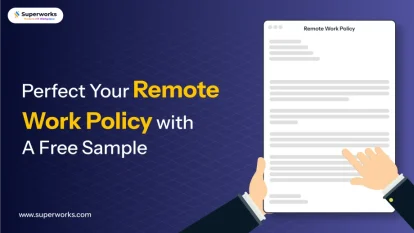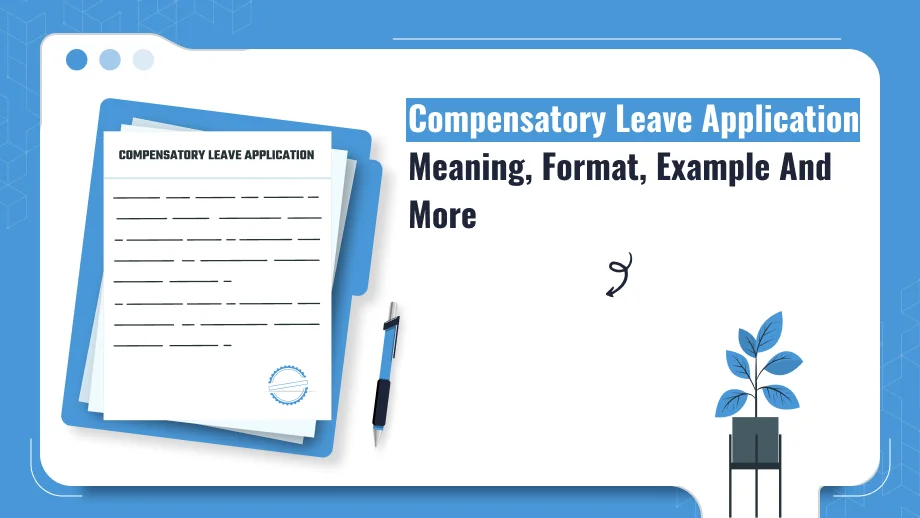Grab a chance to avail 6 Months of Performance Module for FREE
Book a free demo session & learn more about it!
-
Will customized solution for your needs
-
Empowering users with user-friendly features
-
Driving success across diverse industries, everywhere.
Grab a chance to avail 6 Months of Performance Module for FREE
Book a free demo session & learn more about it!
Superworks
Modern HR Workplace
Your Partner in the entire Employee Life Cycle
From recruitment to retirement manage every stage of employee lifecycle with ease.


Seamless onboarding & offboarding
Automated compliance & payroll
Track performance & engagement
Increment Policy – 5 Hidden Benefits You Must Know | Superworks
- salary increments
- 8 min read
- May 30, 2023

In today’s competitive job market, retaining top talent is essential for the success of any organization. One effective tool that companies can use to achieve this is a salary increment policy.
For the uninitiated, a salary increment policy outlines the process by which employees receive regular salary increases based on factors such as job performance, length of service, and market conditions.
By implementing such a HR policy, HR letter companies can not only an increase employee satisfaction & motivation but also ensure that they remain competitive within their industry.
In this blog, we will explore the same benefits of an increment policy & how it can help organizations retain their top performers.
On what Basis is a Salary Increment Given to the Employees?
Here are some common bases on which salary increments are typically given:
1. Job Performance:
One of the most important factors in determining a salary increment is an employee’s job performance. Organizations may use performance evaluations to assess his or her performance and determine if they are meeting or exceeding expectations. If an employee is performing well, they may be eligible for a salary increase.
2. Years of Service:
Another factor that may be considered when determining a salary increment is an employee’s length of service with the organization. Employees who have been with the company for a longer period of time may be eligible for a salary increase as a reward for their loyalty as well as commitment.
3. Market Conditions:
The salary levels for a particular job in the market may also be considered when determining salary increment letter. If the market conditions dictate that salaries for a particular job have increased, the organization may adjust its salaries to remain competitive, thereby attracting and retaining top talent.
4. Company Profitability:
The financial health of the company may also be a factor in determining salary increment. If the organization is doing well financially, it may be able to offer more generous salary certificate letter, salary increases to employees.
5. Industry Standards:
The salary increment may also differ according to the industry standards and benchmarks for specific job roles, which are determined based on the demand for a job, and skills required for qualified candidates in the market.
How to determine salary increase of the employee?
Here are the steps you can take to determine an appropriate salary increase for an employee:
1. Evaluate the Employee’s Performance:
The first step in determining a salary increase is to evaluate the employee’s job performance, employee performance appraisal. This could involve conducting a formal performance review, assessing his or her work quality, productivity, and contributions to the organization.
2. Determine the Organization’s Salary Structure:
The second step is to determine the organization’s salary structure in india, which includes the range of salaries offered for different job roles. This information can be obtained from job market surveys or salary benchmarking data.
3. Consider the Employee’s Current Salary:
The employee’s current salary should also be considered when determining the salary increase. This will help ensure that the new salary figure is fair and appropriate be given the employee’s current level of compensation.
4. Analyze the Market Conditions:
The organization should also consider the market conditions for his or her job role, including the demand for the job, the skills required, and the availability of qualified candidates. This can help ensure that the salary increase is competitive and will help attract and retain top talent.
5. Determine the Budget for Salary Increases:
Finally, the organization should determine the budget for salary increases and how much it can afford to allocate towards salary increment for employees. This can help ensure that the salary increases are sustainable and align with the organization’s overall financial goals. If you need to salary increment letter format check this webstory.
How To Calculate Annual Salary Increment Percentage?
To calculate the annual salary increment percentage, follow these steps:
1. Determine the employee’s current salary:
The first step is to determine the employee’s current salary. This can be found on their to pay stub or through HR records.
2. Determine the new salary:
The next step is to determine the employee’s new salary after the increment. This can be calculated by adding the percentage increase to the current salary.
3. Calculate the percentage increase:
To calculate the percentage increase, subtract the current salary from the new salary, then divide the result by the current salary. Finally, multiply the result by 100 to convert it into a percentage.
Here’s the formula:
Percentage increase = ((new salary – current salary) / current salary) x 100
For example, let’s say an employee’s current salary is $50,000 and they are eligible for a 5% a salary increment. To calculate the new salary of & the percentage increase:
New salary = $50,000 + ($50,000 x 5%) = $52,500
Percentage increase = (($52,500 – $50,000) / $50,000) x 100 = 5%
Therefore, the employee’s new salary after increment calculations is $52,500, and the percentage increase is 5%.
How to Design An Effective Salary Increment Policy?
Just follow the below mentioned five steps:
1. Define the Objective:
The first step is to clearly define the objective of the policy. This may include attracting as well as retaining top talent, rewarding high-performing employees, employee management and keeping salaries competitive within the industry.
2. Determine the Criteria:
Companies should determine the criteria for determining which employees are eligible for a salary increment, as well as the amount of the increment. This may include job performance, seniority, market conditions, and other factors that are relevant to the company’s objectives.
3. Set a Budget:
Companies should set a budget for salary increment that aligns with the company’s financial goals and resources. This will help ensure that an increment policy is sustainable and aligned with the company’s overall financial strategy.
4. Communicate the Policy:
It’s important to communicate the decided increment policy to all employees in a clear & transparent manner. This will help ensure that employees understand the criteria for receiving a salary increment, the amount of the increment, and any other relevant information.
5. Monitor & Review:
Finally, companies should regularly check their increment policy to ensure that it remains effective as well as aligned with the company’s objectives. This may involve gathering feedback from employees, employee retention analyzing performance data, and adjusting the policy as necessary.
Read More – This Promotion Letter Format Will Impress Your Employees!

Unable to create transparent company policies? Don’t you worry!
Rely on Superworks HRMS software to create and share company policies with 100% transparency. With Superworks, enjoy the whole process of policy management and ensure effective communication within the workplace.
What are you waiting for? Book a free demo to learn more about Superworks!
5 Benefits of A Well-Defined Increment Policy
Take a look at five benefits:
1. Attract & Retain Top Talent:
A well-defined policy can help attract & retain top talent by offering competitive salaries and clear career growth opportunities. It is improve employee morale & motivation, leading to higher productivity as well as job satisfaction.
2. Reward High-Performing Employees:
A policy that employee rewards high-performing employees can help encourage & motivate employees to perform at their best. This can lead to increased productivity, improved quality of work, and a positive work environment.
3. Provide a Fair & Transparent Process:
A well-defined policy provides a fair & transparent process for salary increases. This can help reduce bias & favoritism, improve employee morale, and increase trust and transparency within the organization.
4. Enhance Employee Engagement & Loyalty:
By providing clear expectations & opportunities for career growth, a well-defined increment policy can enhance employee engagement as well as loyalty. This can lead to lower turnover rates, reduced recruitment, training costs, and improved employee engagement.
5. Align with Organizational Goals:
A well-defined policy can help align employee compensation with organizational goals. This can to help ensure that the company’s financial resources are being used effectively, leading to improved financial performance as well as long-term success.
Parting Thoughts
A well-structured salary increment policy ensures fairness, compliance with the minimum salary in india, and helps maintain employee motivation.
By following a structured approach to designing and implementing a policy, companies can ensure that they are using their financial resources effectively & efficiently, while also providing clear career growth opportunities for their employees.
A strong salary increment policy can lead to improved employee morale, motivation, and productivity, resulting in long-term organizational success. Therefore, organizations need to design a well-designed & transparent increment policy, with the help of our HR toolkit to support their employees and achieve their business objectives.
Also, See: appraisal letter format | Bonus Announcement Letter | Leave adjustment | Human Resource Management Software | testimonials | inter department transfer letter format









